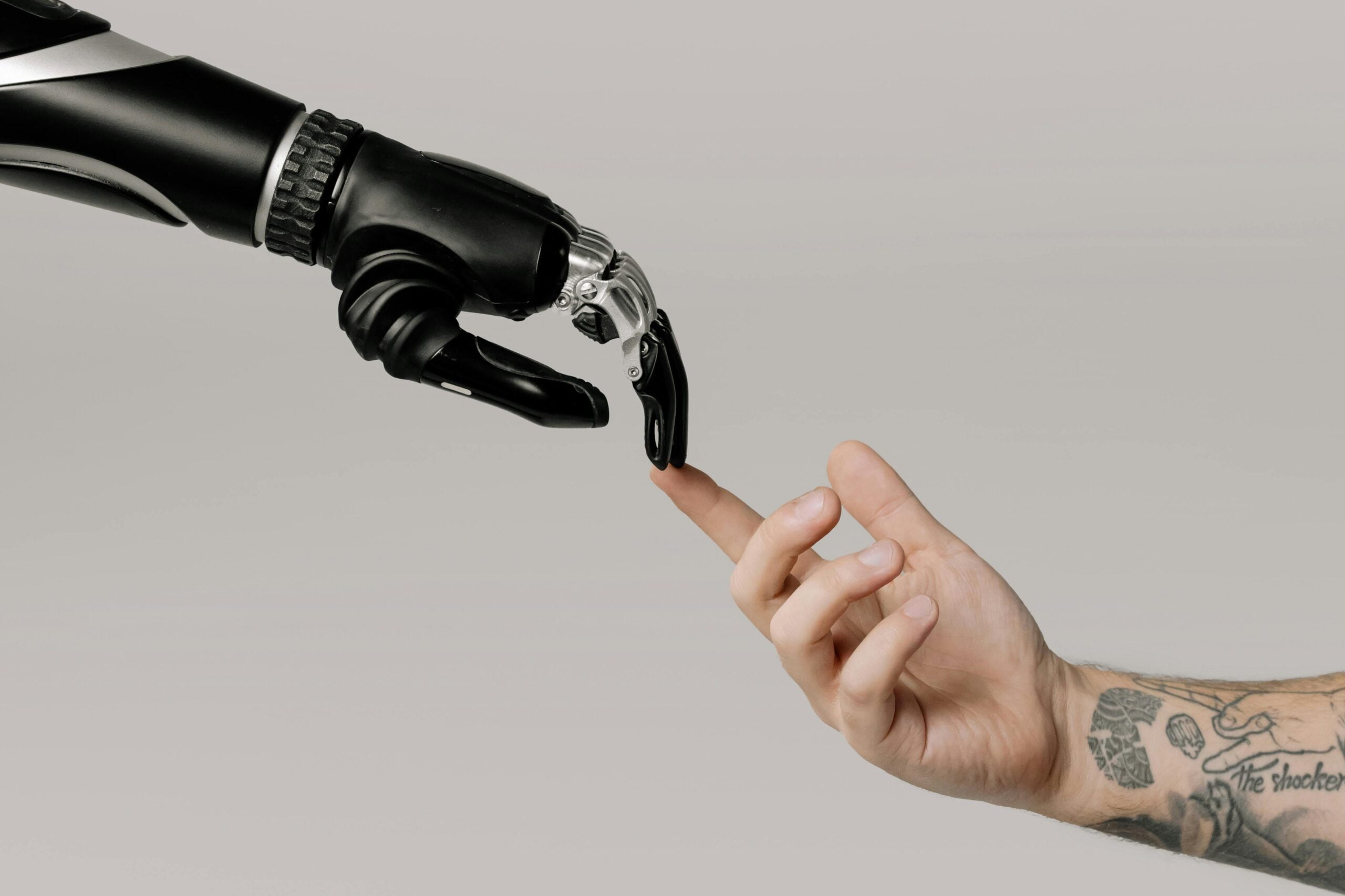The Evolution of AI Technology
The journey of artificial intelligence technology is marked by various milestones that eventually shaped the advancement we see today in 2025. First, the whole idea of artificial intelligence was born in the 20th century, with people’s desire to be able to perform human functions with machines. The Dartmouth Conference in 1956 was a gathering point for a collection of researchers where the potential in AI was first discussed and marked as the official birth of this field.
An important milestone was in the 1980s when machine learning was developed, so computers could learn from data without depending on previously defined rules. The revival of neural networks and especially deep learning marked another big milestone in the 2010s. The approach made tremendous use of a huge amount of data and computation power to perform complex tasks previously considered to be the exclusive province of human intelligence.
Not to be confused, in this timeline, NLP also evolved much. The introduction of sophisticated algorithms and models, like transformers, revolutionized how machines understood and generated human language-application cases that reshape user experiences: from virtual assistants to translation services. All this not only upgrades personal productivity but is changing the face of industries such as healthcare, where AI-driven diagnostics smoothen up patient care, and finance, where trading strategies and detection of frauds are optimized using algorithms.
Moving into 2025, the impact of such development grows more serious. Industries have begun embracing the AI technology in bringing efficiency, making better decisions, and effectively engaging with customers. The integration of AI systems into everyday technologies has fostered a new era of innovation; thus, making it imperative for businesses to adapt to the evolving tech landscape powered by artificial intelligence.
Artificial Intelligence (AI) has come a long way in the last decade, transforming everything from industries to consumer experiences. By 2025, AI is expected to be fully embedded in the fabric of daily life, driving advancements in gameplay, consumer electronics, business operations, and much more. At gigaguidetech, we’ve closely analyzed the trends, breakthroughs, and consumer-facing innovations that are defining AI’s role in 2025, and we’re here to break down how it’s changing the tech landscape.
Applications of AI That Are Transforming the Industries
AI, by 2025, will be reckoned as contributing significantly to developing processes and operations across industries. It has also started showing its transformational effect within industries dealing with manufacturing, agriculture, retail, and entertainment, amongst others, by moving the wheels of efficiency and effective decision-making using applications of AI. Predictive maintenance is a common application witnessed across manufacturing industries. AI-powered predictive analytics in data from machinery and equipment make it able to predict failures before they occur. The idea is to minimize downtime, along with maintenance costs, by enabling companies to smoothen their operations.
AI is transforming the face of agriculture. Precision agriculture keeps farmers on top with the analysis of everything, from soil conditions and weather data to crop health, assisted by AI-powered machinery. Drones fitted with AI sensors can oversee huge areas, showing with great detail the exact amount of irrigation required and any pest management needed. These applications help to improve productivity and sustainability for the fulfillment of the growing demand for food in an ecologically responsible manner.
AI technologies are causing a sea change in the retail industry. Driven by AI algorithms that analyze consumer behavior and preferences, personalized shopping experiences are now becoming the new order of the day. This allows retailers to provide recommendations, thus increasing customer satisfaction and loyalty. AI is also used for inventory management to help companies predict trends and understand how to better manage their stock.
Technological Trends: The AI Revolution
In 2025, AI isn’t some concept of the future but is part of reality. It’s embedded everywhere, from smartphones and gaming to cloud computing and business intelligence. Some of the most highly recognized trends for this revolution are:
1. AI-Powered Gameplay and Gaming Innovation
Gaming remains one of the most vibrant spaces in which the capability of AI currently manifests. Be it intelligent NPC development, improvement in the field of game graphics, or bespoke recommendations that increase player experiences, AI is taking a toll on how games are created and played.
In 2025, expect AI-driven procedural generation in games to create endless possibilities for dynamic, personalized environments. Games like “Cyberpunk 2077” and “Assassin’s Creed” are already using AI to craft intelligent storylines and NPCs that respond to player actions, and this trend is set to expand. If you’re a gamer looking for AI-powered experiences, advanced game engines such as Unreal Engine 5 are leading the charge.
2. AI in Consumer Devices
In the line of consumer electronics, the AI landscape is growing: smart speakers, wearables, and even home appliances will become smarter with the help of AI. Apple Siri, Google Assistant, and Amazon Alexa are only the first tries. By 2025, these AI assistants will be way more intuitive, seamlessly integrated with our digital lives, performing all kinds of tasks from calendar handling to complete smart home management.
Expect smart devices to get even more personal by learning your choices and behavior to offer a hyper-personalized experience.
3. AI for Business Intelligence and Automation
AI will disrupt industries with its wide prospects in automation and business intelligence. Starting from 2025, AI is positioned to be used across industries – healthcare, finance, logistics, among others-for optimizing operations, trends, and real-time decision-making.
With the likes of IBM’s Watson and Google Cloud AI, businesses can put data to better use, enhancing everything from marketing campaigns to customer service. Automation of processes with AI-driven tools reduces human error and increases efficiency, making them irreplaceable for any business.
AI Products to Watch in 2025
Let’s dive into some of the top AI products that are making waves in 2025. We’ve selected these based on their technological innovations, real-world applications, and pricing models.
1. NVIDIA GeForce RTX 5000 Series
NVIDIA has been at the forefront of AI-powered gaming and computing hardware, and the GeForce RTX 5000 Series takes it to the next level. Powered by NVIDIA’s Ada Lovelace architecture, these GPUs are engineered for AI-enhanced gaming and creation of content. With real-time ray tracing and DLSS, or Deep Learning Super Sampling, this allows gamers to create realism like never before.
Pricing: The base model, starting from approximately $999 of the RTX 5000 series, goes to $2,500 with its higher variants. This features AI-powered graphics acceleration and hence will be the ultimate graphics card that every techie gamer seeks for extreme performance in his computer system.
- Only Support ASUS BTF ATX Motherboards (ROG MAXIMUS Z790 HERO BTF, TUF GAMING Z790-BTF WIFI, TUF GAMING B760M-BTF WIFI) …
- Powered by NVIDIA DLSS3, ultra-efficient Ada Lovelace arch, and full ray tracing
- 4th Generation Tensor Cores: Up to 4x performance with DLSS 3 vs. brute-force rendering
2. Google AI Assistant – 2025 Edition
Newer versions of Google Assistant integrate even more AI-powered features, including predictive analysis and deeper integrations with third-party devices. From creating custom routines to controlling your home, the Google Assistant of 2025 is not only smarter but also more autonomous.
Price: Free with most Android devices, though some premium features will require Google hardware, such as the Nest Hub Max, which is available for approximately $230.
- VALUE BUNDLE INCLUDES: Google Nest Hub Max with Global Language Compatibility so it works everywhere, Universal Power Ad…
- IT WORKS EVERYWHERE Easy to use and will automatically start up in English when connecting to your device for the first …
- BLENDS RIGHT INTO YOUR HOME Looks great on a nightstand, shelf, countertop – or on your desk. This Nest Hub Max is large…
3. Apple Vision Pro
Apple Vision Pro, launching in 2025, is a mixed-reality headset using AI and machine learning. This device is one of the main commitments Apple has made to AI-powered, immersive experiences. It lets the user interact with virtual environments, manipulate apps by gestures of the hand, and even collaborate in virtual workspaces.
Price: Expected to cost around $3,499, positioning this high-end and very advanced piece of tech right into the laps of consumers seeking an unprecedented AI-driven virtual experience.
Target Market for AI Products in 2025
Identifying the target markets these products have becomes meaningful. Generally, a broad categorization could look like the following for an AI product’s target market in 2025:
- Early Adopters & Tech Enthusiasts: These customers are eager to try new AI-powered gadgets and are usually the first to give a shot to the next smart home assistant or new, advanced gaming hardware.
- Businesses and Industry Professionals: The businesses looking to enhance automation, increase productivity, or deliver data-driven decisions shall power users of AI-based tools like IBM Watson, Google Cloud AI, or Microsoft Azure AI.
- Casual Consumers: Everyday users seeking an AI-driven experience in their phones, homes, and entertainment devices will find AI integration in products like Apple’s Siri and Google Assistant.
Pricing and Value for Consumers
Pricing-wise, the AI market is highly varied in 2025. While smart assistants and wearables are getting increasingly affordable, high-end products like NVIDIA GPUs and Apple’s Vision Pro are priced at a premium. But more often than not, the value they provide-gaming, productivity, or personalized experiences-is well worth it.
Conclusion: Why You Should Be Excited About AI in 2025
AI in 2025 promises to unlock new levels of personalization, productivity, and entertainment. Be one a gamer, technology enthusiast, or an industry player-the impact of AI on daily life and business operations is undeniable. From gaming to business intelligence and beyond, AI is fast changing the way we interact with technology.
With a few state-of-the-art, AI-powered products, now is the time to get ahead of the curve and invest. Be it upgrading your gaming setup, home with smart technology, or ways of working; AI is a game-changer in 2025.












